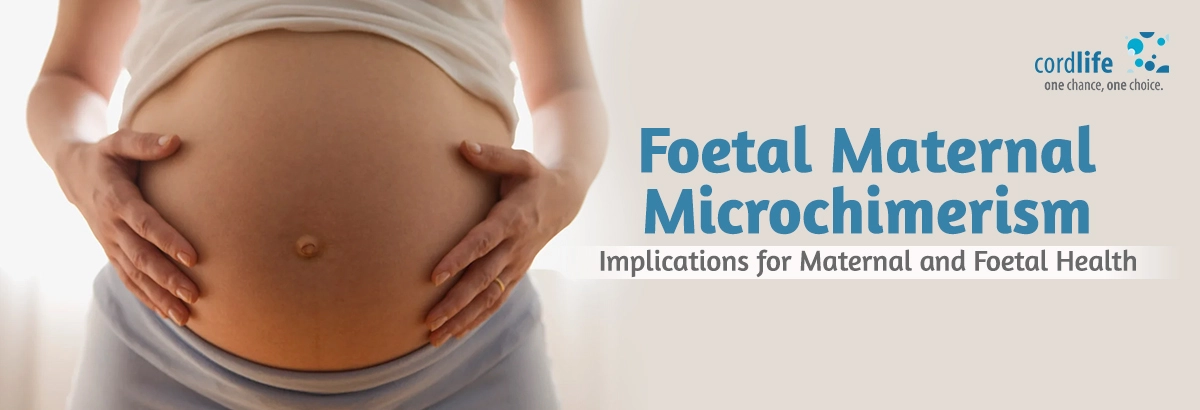Table of Contents
- Foetal Maternal Microchimerism
- Foetal DNA in Maternal Plasma
- Autoimmune Effects on the Mother
- Foetal Microchimerism Occurs in Healthy Women
- Factors that Influence Maternal Development in Foetal Microchimerism
- Foetal Microchimeric Cells Help in Repairing Maternal Tissues
- Maternal Microchimerism in Pregnancy
Microchimerism is a small population of cells born from foetal microchimerism (FMc) and maternal microchimerism (MMc). While foetal microchimerism is the presence and persistence of foetal cells in maternal tissues, maternal microchimerism (MMc) is the presence of maternal cells in foetal tissues.
Foetal Maternal Microchimerism
The fetus’ stem cells can migrate across the placenta to enter the mother’s bone marrow. A transfer of foetal progenitor stem cells begins 4 or 5 days immediately after fertilisation and goes along with all the pregnancy stages.
Microchimerism of this kind takes place both in male and female embryos. However, due to the presence of Y-chromosomes in women, it is easy to detect male microchimerism in maternal tissue.
Foetal microchimerism is found in the cellular subsets of the pregnant mother’s peripheral blood, including lymphoid-lineage and myeloid-lineage cells. An experiment was conducted to evaluate microchimerism where 40% had maternal microchimerism compared to 15% who had foetal microchimerism.
Foetal DNA in Maternal Plasma
To further evaluate the foetal DNA in maternal plasma and urine samples. 80 pregnant women were studied during 7th and 40th week of pregnancy. Their DNA was amplified using nested polymerase chain reactions for Y-chromosome DNA. According to the postpartum analysis of fetal gender, 25 women carried females and 55 males. 96% of plasma samples and 38% of urine samples from 55 women bearing male fetuses had Y chromosome-specific signals. An increase in gestational age increases Y-chromosome-PCR’s specificity and sensitivity.
Theoretically, there is an abundance of foetal microchimerism depends upon several factors like –
- immunogenetic relationships between mother and fetus, and
- preexisting inhabitants of the maternal system, from her mother or previous children
Autoimmune Effects on the Mother
Studies have been conducted to determine whether microchimerism is associated with autoimmune diseases affecting mostly women. Autoimmune thyroid disease impacts reproductive-aged women. The foetal cells are present in the maternal peripheral blood for a very long time and have clinical similarities with the graft-vs-host disease and autoimmune disease leading to autoimmune diseases.
Foetal Microchimerism Occurs in Healthy Women
Maybe the frequency of foetal microchimerism in healthy women is not known, but studies have come up with autoimmune disease reports with wide variation from 8% to 72%. In animal studies, Foetal microchimerism may have been seen to be frequent and has always been present. Even a report of male presumed-foetal cells is found in bone marrow, and bone is mostly found in postreproductive women.
Factors that Influence Maternal Development in Foetal Microchimerism
The factors that have influenced the development of foetal microchimerism have been much debated. But the major factors that influence foetal microchimerism include:
- Placental abnormality
- Foetal Aneuploidy (the presence of one or more extra or absence of chromosomes)
- Preeclampsia and
- pregnancy loss or termination
- Genetic and environmental factors are also likely to contribute to microchimerism
Foetal Microchimeric Cells Help in Repairing Maternal Tissues
In recent years. it has been found that microchimeric foetal cells respond to maternal tissue injury. Injured tissues produce signals to move foetal stem cells from the pregnancy reservoir, and further stimulate the engrafted stem cells into specialised stem cells. Moreover, chronic tissue injury may promote the beginning of microchimerism
Maternal Microchimerism in Pregnancy
Maternal microchimerism is a bidirectional process, in which there is a transfer of maternal cells into the foetal circulation. This concept was designed in 1960, in when a famous researcher found maternal leukocytes in the umbilical cord. Having said that during early foetal life and in the early life of a newborn; maternal microchimeric cells were found in various organs including the thymus, skin, liver, spleen, and thyroid. Maternal Microchimerism and some more T cells produce cytokines that can impact foetal development to the potential autoimmune disease.
